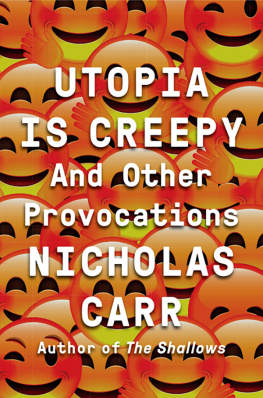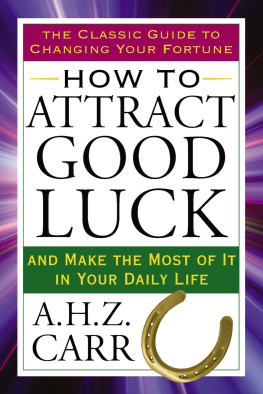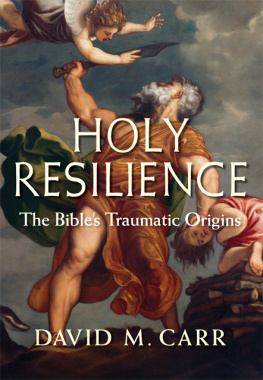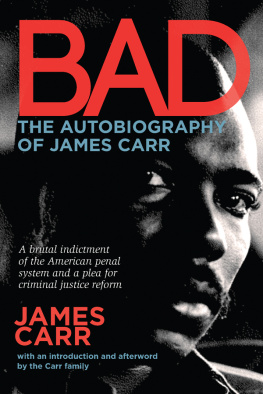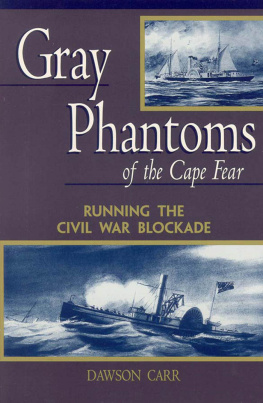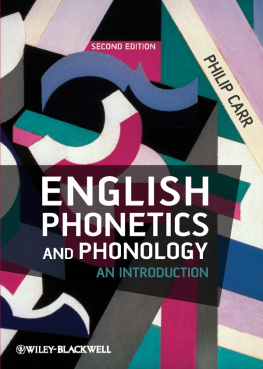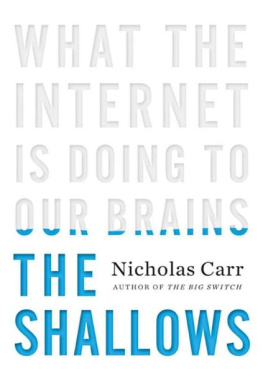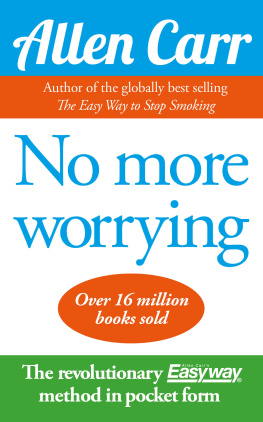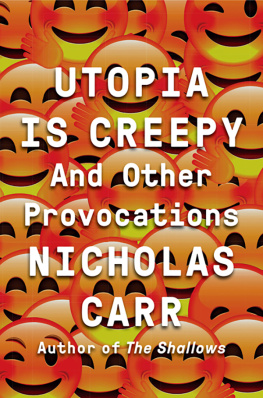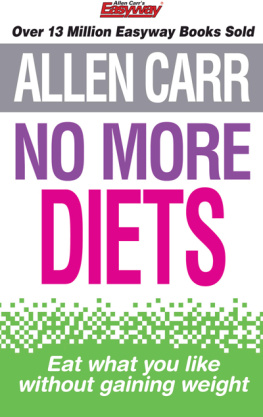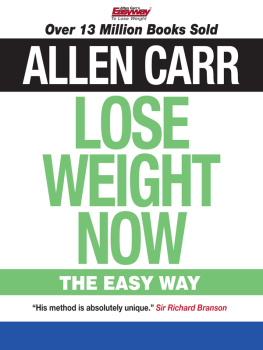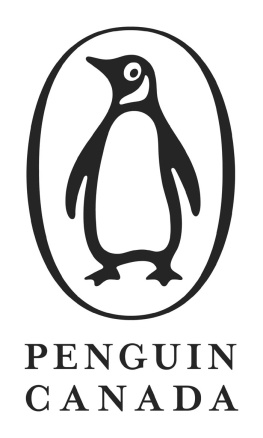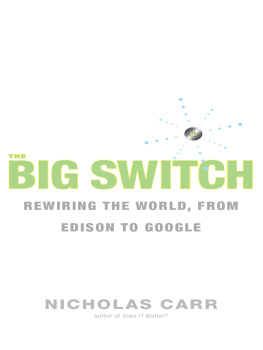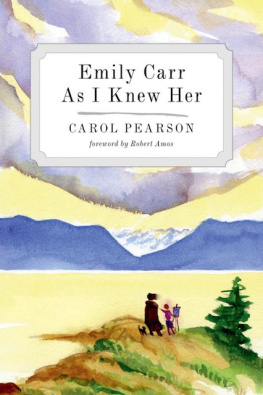

To Nora and Henry
FIRST SERIES (2012)
1. The complexity of the medium is inversely proportional to the eloquence of the message.
2. Hypertext is a more conservative medium than text.
3. The best medium for the nonlinear narrative is the linear page.
4. Twitter is a more ruminative medium than Facebook.
5. The introduction of digital tools has never improved an art form.
6. The returns on interactivity quickly turn negative.
7. In the material world, doing is knowing; in media, the opposite is the case.
8. Increasing the intelligence of a network tends to decrease the intelligence of those connected to it.
9. The one new art form spawned by the computerthe video gameis the computers prisoner.
10. Personal correspondence grows less interesting as the speed of its delivery quickens.
11. Programmers are the unacknowledged legislators of the world.
12. One always regrets ones retweets.
13. The album cover turned out to be indispensable to popular music.
14. Abundance of information breeds delusions of knowledge among the unwary.
15. To thine own image be true.
16. No great work of literature could have been written in hypertext.
17. Social media is a palliative for underemployment.
18. The philistine appears ideally suited to the role of cultural impresario online.
19. Television became more interesting when people started paying for it.
20. Instagram shows us what a world without art looks like.
SECOND SERIES (2013)
21. Recommendation engines are the best cure for hubris.
22. Vines would be better if they were one second shorter.
23. Hell is other selfies.
24. Twitter has revealed that brevity and verbosity are not always antonyms.
25. Personalized ads provide a running critique of artificial intelligence.
26. Who you are is what you do between notifications.
27. Online is to offline as a swimming pool to a pond.
28. People in love leave the sparsest data trails.
29. YouTube fan videos are the living fossils of the original web.
30. Mark Zuckerberg: the Grigory Potemkin of our time.
THIRD SERIES (2014)
31. Every point on the internet is a center of the internet.
32. Ones sense of solipsism intensifies as ones follower count grows.
33. A thing contains infinitely more information than its image.
34. A book has many pages; an ebook has but one.
35. If a hard drive is a soul, the cloud is the oversoul.
36. The essence of an event is the ghost in the recording.
37. A Snapchat message becomes legible only after it vanishes.
38. Authenticity is artifice perfected.
39. When we turn on a GPS system, we become cargo.
40. Google searches us.
FOURTH SERIES (2015)
41. Tools extend us; media confine us.
42. People take facts as metaphors; computers take metaphors as facts.
43. We need not fear robots until robots fear us.
44. Engineers are ethicists in denial.
45. Friction is virtuositys lubricant.
46. A car without a steering wheel is comic; a car without a rearview mirror is tragic.
47. One feels lightest after one clears ones browser cache.
48. The things of the world manifest themselves as presence or absence.
49. Memory is the medium of absence; time is the medium of presence.
50. A bird resembles us most when it flies into a window.
ALSO BY NICHOLAS CARR
The Glass Cage
The Shallows
The Big Switch
Does IT Matter?
The Digital Enterprise (editor)
UTOPIA IS CREEPY
THE SEVENTY-NINE POSTS COLLECTED in the first section of this book appeared between 2005 and 2015 in my blog Rough Type. Many of them have been reworkedcompressed, expanded, or otherwise tinkered withto fit the books form and flow. A few of the posts also appeared, in different versions, in other publications: Looking into a See-Through World appeared in The Guardian (under the title The Internet Rewards the Lazy and Punishes the Intrepid); Nowness appeared in Nieman Reports (under the title News in the Age of Now); The Medium Is McLuhan appeared in The New Republic; The Hierarchy of Innovation and Will Gutenberg Laugh Last? appeared in the Wall Street Journal (under the respective titles Why Our Innovators Traffic in Trifles and Dont Burn Your BooksPrint Is Here to Stay); Out of Control appeared in the book What to Think about Machines That Think (under the title The Control Crisis); Our Algorithms, Ourselves appeared in the Los Angeles Review of Books (under the title The Manipulators); and The Seconds Are Just Packed appeared in the book What Should We Be Worried About? (under the title The Patience Deficit).
The aphorisms in the second section of the book were also drawn from Rough Type.
The third section includes works originally published, sometimes in different forms, in the following newspapers, magazines, and books: Flame and Filament was the epilogue to my book The Big Switch: Rewiring the World, from Edison to Google; Is Google Making Us Stupid? and Mother Google (under the title Googlethink) appeared in The Atlantic; Screaming for Quiet (under the title Deafened), Hooked, and Past-Tense Pop appeared in The New Republic; The Dreams of Readers appeared in the U.K. collection Stop What Youre Doing and Read This!, published by Vintage; Life, Liberty, and the Pursuit of Privacy (under the title Tracking Is an Assault on Liberty, with Real Dangers) appeared in the Wall Street Journal; The Library of Utopia appeared in MIT Technology Review; The Boys of Mountain View (under the title Growing Up Google) appeared in The National Interest; The Eunuchs Children (under the title Paper Versus Pixel) appeared in Nautilus; The Love That Lays the Swale in Rows was the concluding chapter of my book The Glass Cage: How Our Computers Are Changing Us; Why Robots Will Always Need Us appeared in the New York Times; The Snapchat Candidate (under the title How Social Media Is Ruining Politics) appeared in Politico Magazine; and Lost in the Cloud (under the title When Our Cultures Past Is Lost in the Cloud) appeared in the Washington Post. The Daedalus Mission was written for this volume.
I am grateful to the many talented editors, proofreaders, and fact checkers that I have had the pleasure to work with, among them Don Peck, Isaac Chotiner, Sheila Glaser, Ryan Sager, Rachel Dry, Brian Bergstein, Charles Arthur, Justine Rosenthal, Michele Pridmore-Brown, Luba Ostashevsky, James Gibney, Natalie Shutler, Patrick Appel, Frances MacMillan, Randy Rothenberg, Gary Rosen, James Bennet, Lisa Kalis, Warren Bass, Jason Pontin, Parul Sehgal, Barbara Kiser, Lucas Wittman, John McMurtrie, Greg Veis, Nick Thompson, Luke Mitchell, Steve Levingston, Juliet Lapidos, Melissa Ludtke, Megan Garber, Mark Armstrong, Amy Bernstein, Art Kleiner, Reihan Salam, Tim Lavin, Mike Orcutt, and Sue Parilla.
I am fortunate to have Brendan Curry, at W. W. Norton, as my editor and John Brockman, at Brockman Inc., as my literary agent. And let me thank my wife, Ann, for her patience in putting up with my blogging, even when I was tapping out posts in the small hours of the morning. I deserved worse.
Next page
